Are you looking to request changes to your child's school report but aren't quite sure how to begin? Crafting the perfect letter can make all the difference in ensuring your concerns are heard. In this article, we provide a comprehensive template that will guide you through expressing your thoughts clearly and respectfully. So, grab a cup of coffee and let's dive into the details of how to effectively communicate your needs!
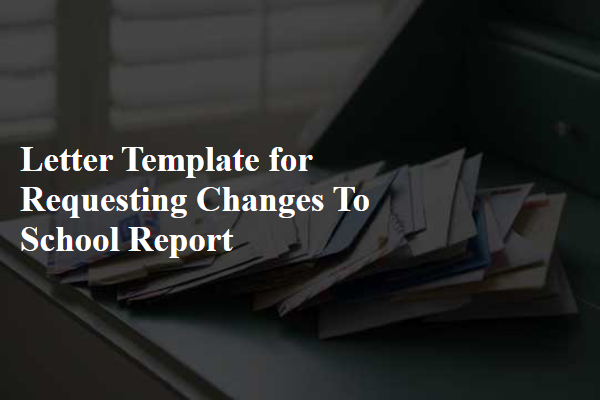
Polite and respectful tone
A school report can serve as an essential document reflecting a student's progress and achievements. Requesting changes to such an important record requires careful consideration of the content, accuracy, and context. The school report typically outlines a student's performance in subjects, attendance records, conduct evaluations, and comments from teachers. In cases where inaccuracies exist, such as incorrect grades or missing information, a formal request for amendment should be crafted. Highlighting specific discrepancies, providing relevant evidence (such as previous assessments), and outlining the impact of these errors on the student's academic profile can help facilitate the adjustment process. Contacting the appropriate school authority, such as the principal or headteacher, through a methodical approach emphasizes respect and ensures proper escalation of the matter.
Clear identification of specific report sections
Requesting changes to a school report requires clear identification of specific sections for accuracy. The introduction, outlining the purpose of the request, must be concise. Following this, clearly list the sections needing revisions, such as 'Academic Performance' or 'Behavioral Comments,' along with specific details like grades, remarks, or incidents noted. Contextual information can include references to curriculum guidelines or recent assessments influencing performance evaluation. Concluding with a request for a revised report provides a formal closure, ensuring clarity in communication while maintaining a professional tone.
Justification for requested changes
Parents and guardians often seek modifications to school reports to reflect their child's academic achievements accurately. For instance, discrepancies in grades may arise from the subjective nature of teacher assessments. In some cases, assessments may occur during a student's temporary struggles, such as illness (for example, influenza) or personal issues affecting performance. Additionally, extracurricular involvement, such as leading a robotics club (e.g., FIRST Robotics), can demonstrate skills and competencies not captured in standard academic metrics. Changes to report card descriptors that enhance descriptions of individual strengths (such as creativity in projects or collaboration during group work) provide a more comprehensive portrayal of student progress. Accurate representation in school reports is essential for future opportunities, including college admissions and scholarships, which consider overall development rather than isolated incidents.
Supporting evidence or documentation
Requesting changes to a school report can involve several key factors. Parents, guardians, or students must provide supporting evidence, such as recent test scores or class assignments, to indicate discrepancies in the assessment. Documentation may also include teacher comments, attendance records, or the school's grading policy applicable to the specific academic year. Clear and concise communication with the administrative office at the educational institution is essential, ensuring that all relevant information, including student identification, grade levels, and specific subjects, is presented accurately to facilitate the review process. Moreover, outlining the specific changes requested, supported by logical reasoning, enhances the likelihood of a successful resolution.
Contact information for follow-up
When a student seeks modifications to their school report, clear and direct communication is essential. Including contact information ensures that school officials can respond promptly. Essential details to include are full name, grade level, and specific report changes needed. Providing an email address (for instance, johndoe@email.com) facilitates written correspondence. A phone number (like (555) 123-4567) enables immediate follow-up conversations. Clearly stating preferred times for contact, such as weekdays after 3 PM, enhances the likelihood of a timely response. This structured approach aids in efficient resolution of report discrepancies or concerns.
Letter Template For Requesting Changes To School Report Samples
Letter template of formal request for alterations in academic evaluations.
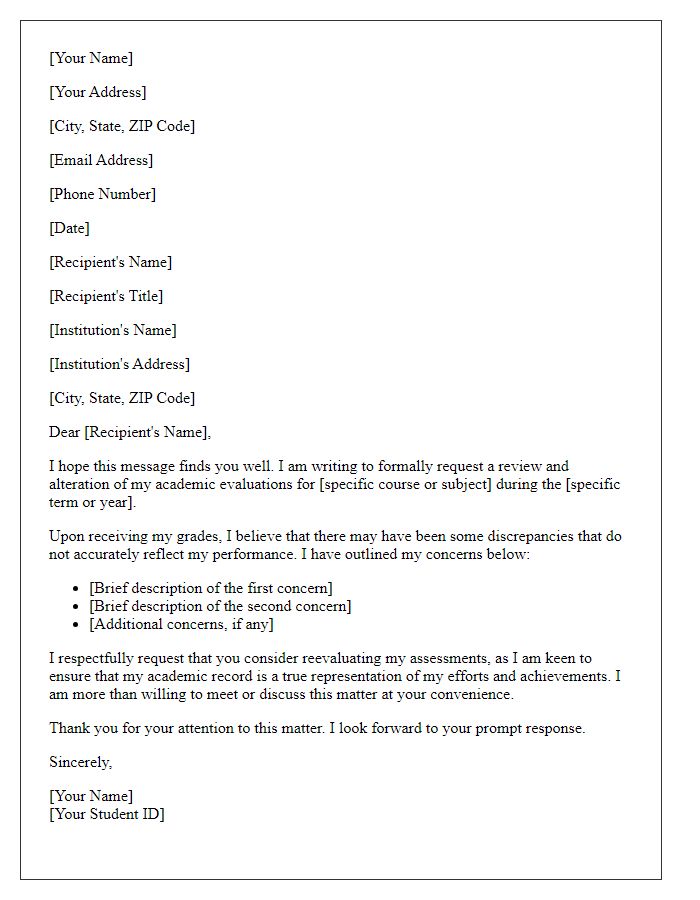

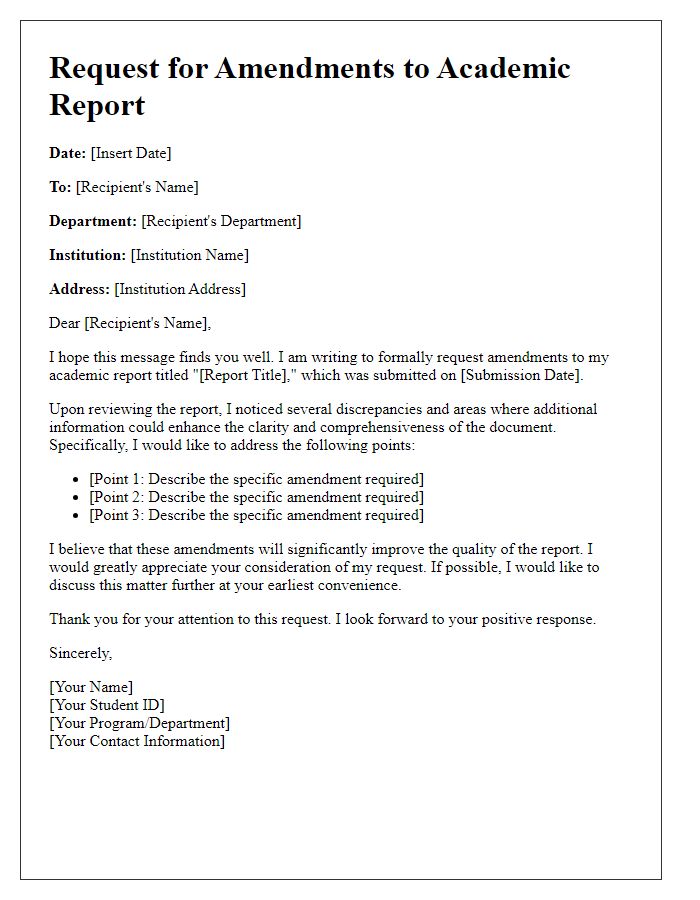
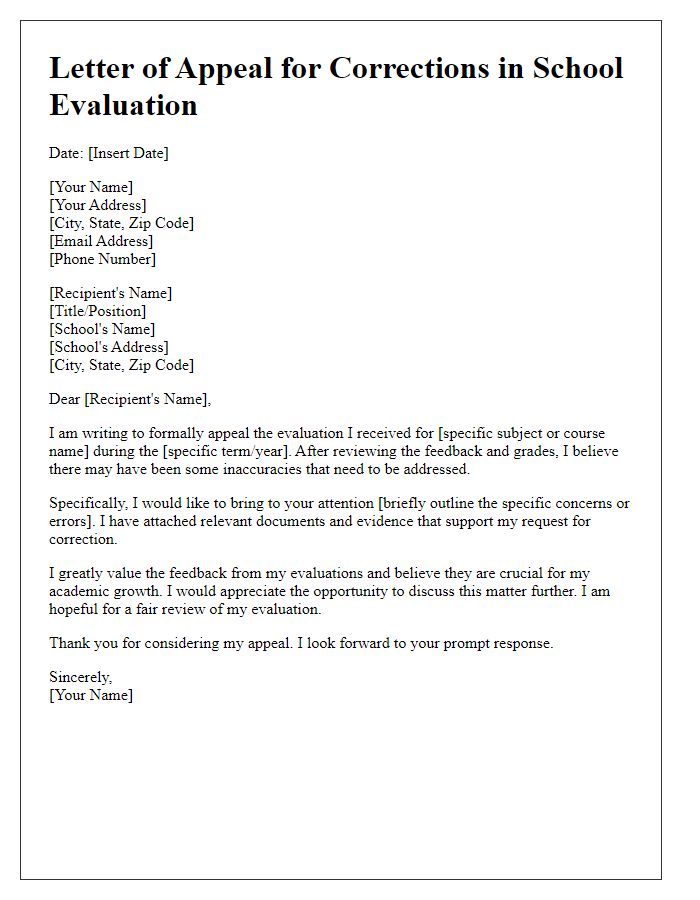
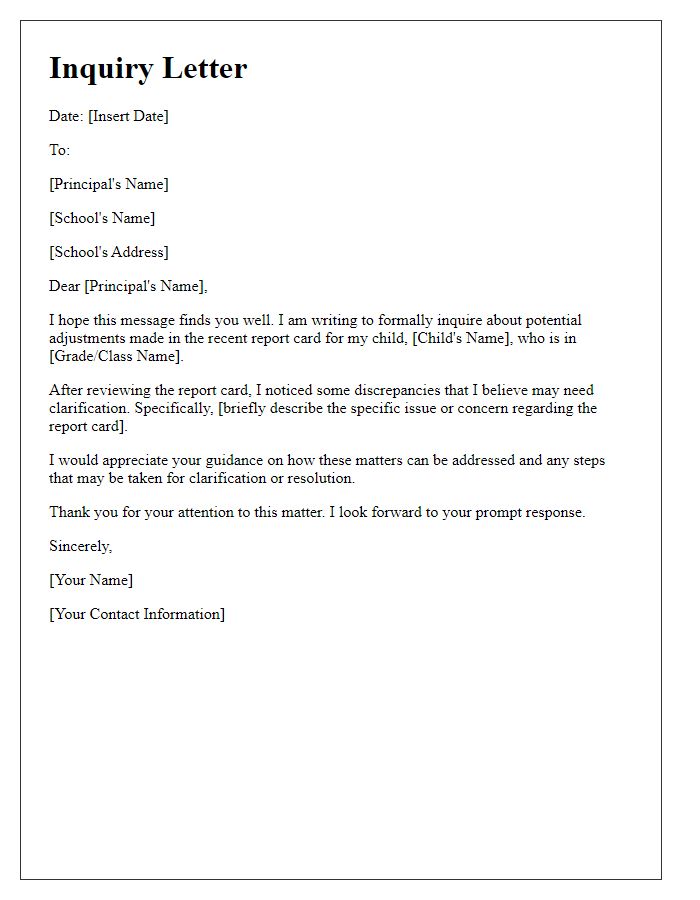
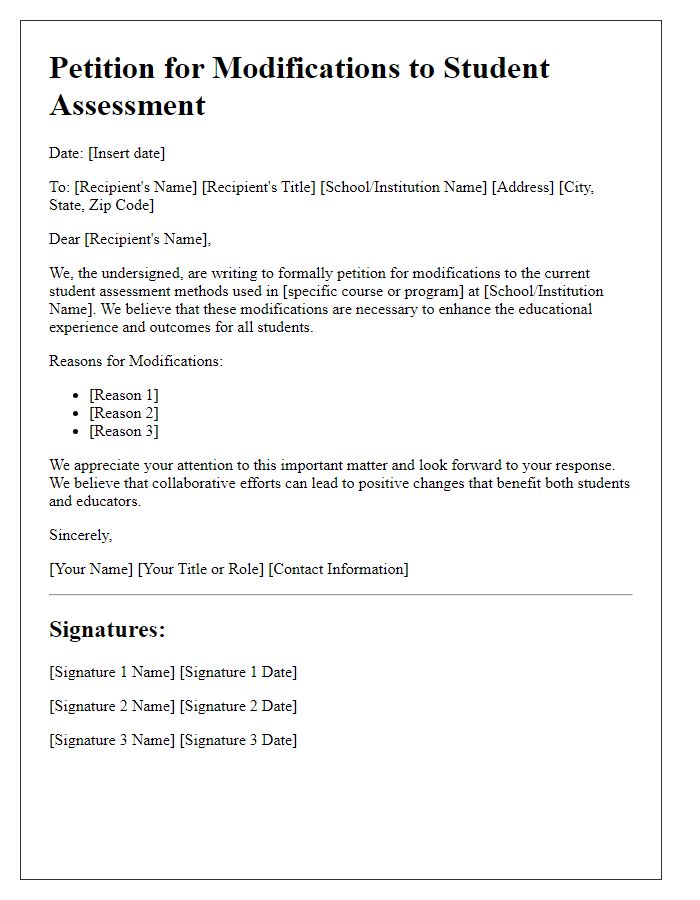
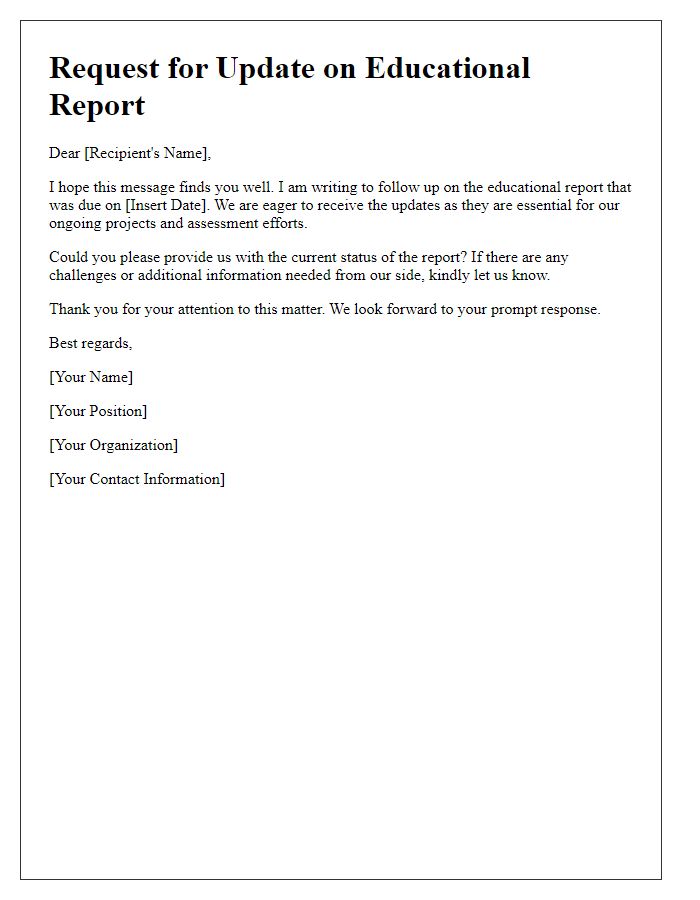
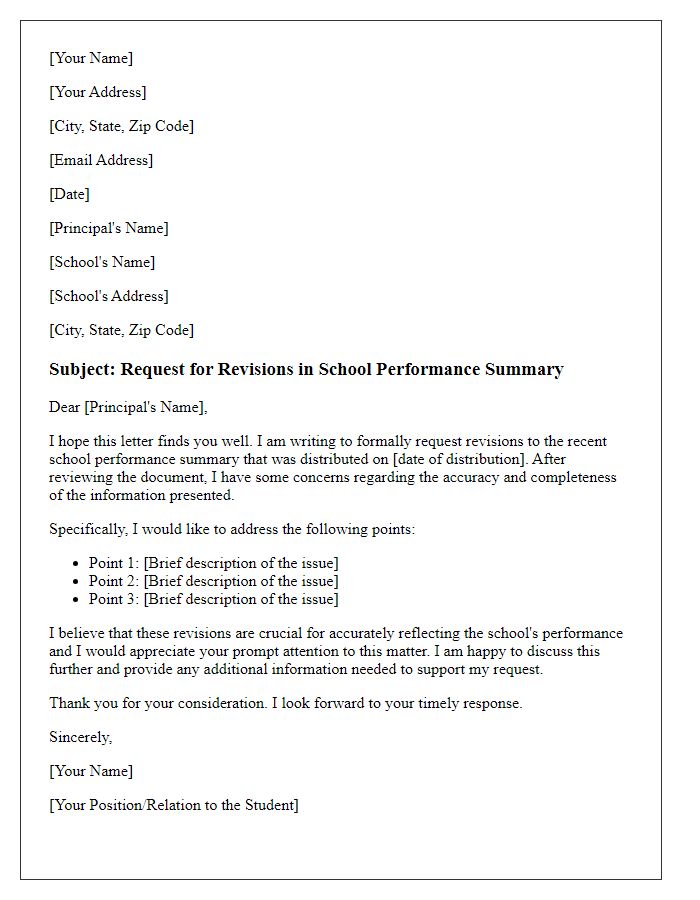
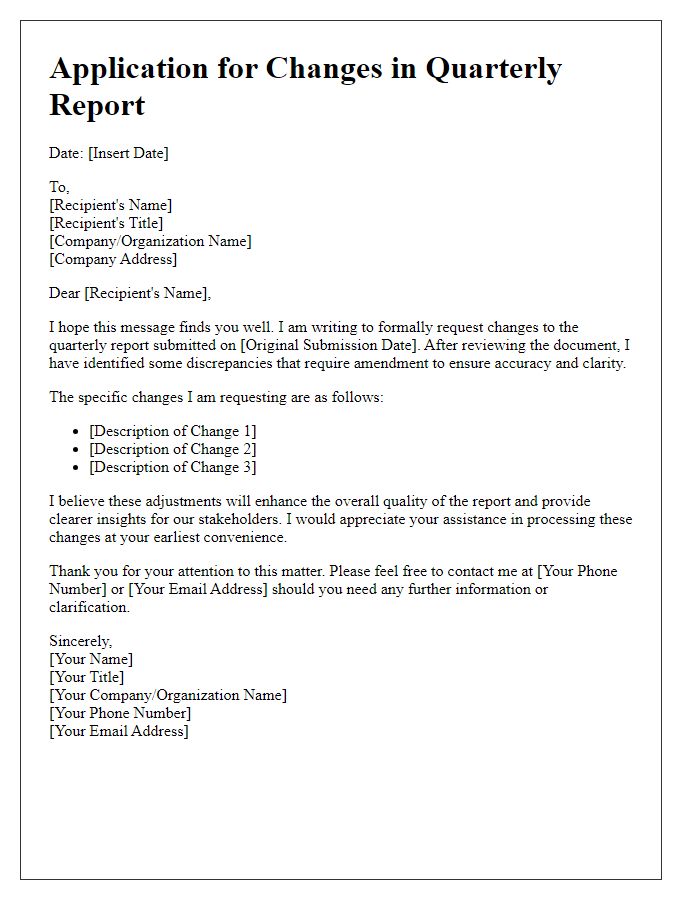
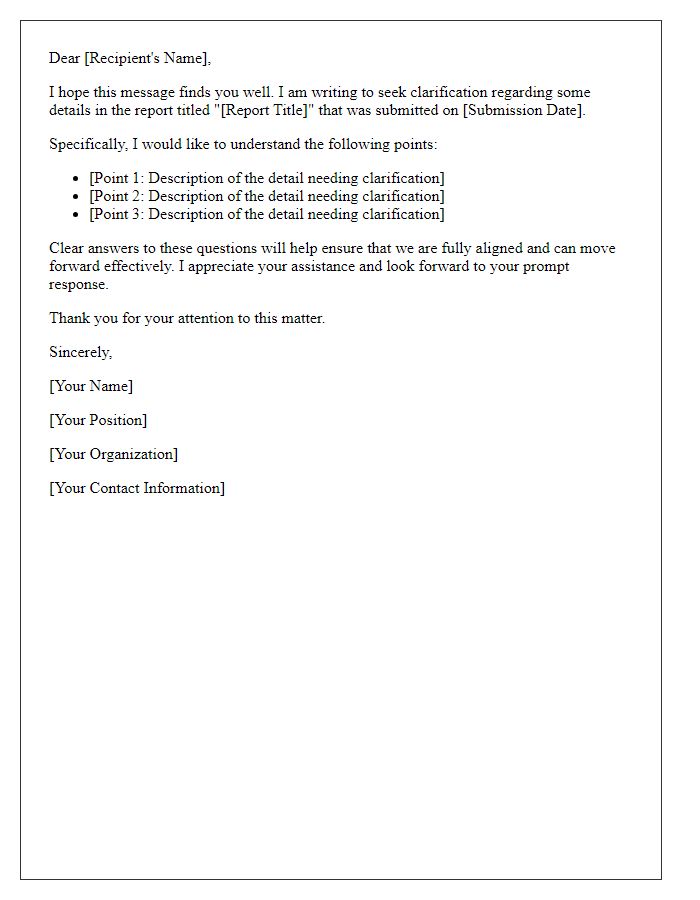
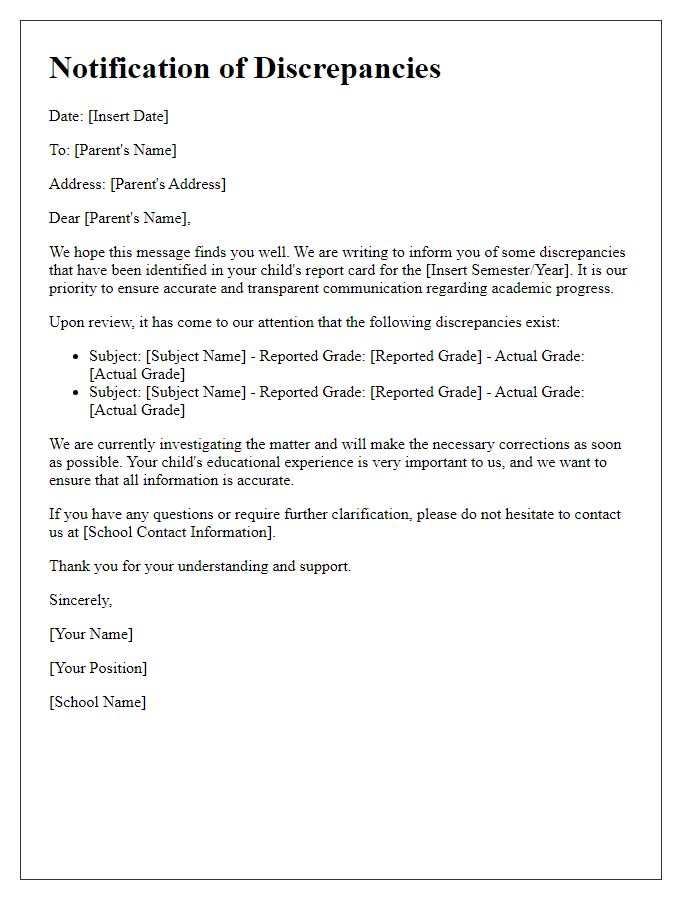


Comments